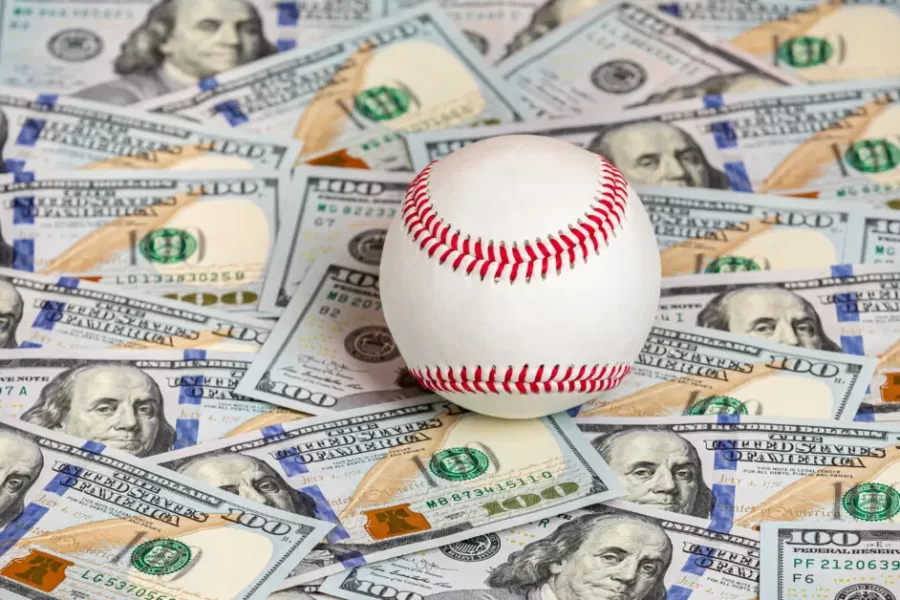Should MLB Introduce a Salary Cap?
“There are rich teams, and there are poor teams. Then there’s fifty feet of crap. And then there’s us.”
—Billy Beane (Brad Pitt), Moneyball
The past couple of years have brought some competitive balance issues to the forefront in Major League Baseball, due to growing concerns from both the league and the Players’ Association. One of those issues is the absence of an MLB salary cap. For those of you who don’t know: in sports leagues, a salary cap is a limit on the amount of money that any given team is allowed to spend on its total payroll. Out of the four major sports leagues in the United States (which also comprise the ÑFL, NHL and NBA), MLB is the only league that has not implemented a salary cap. Because of this, smaller-market teams are more likely to struggle against larger-market teams, and the level of competition from season to season between good and bad teams does not generally change.
Although the league does not have a salary cap, the luxury tax (officially the Competitive Balance Tax, or CBT) was implemented in MLB 27 years ago. This luxury tax was introduced to tax teams that spent more than a certain amount of money on salary, with each “level” of excess spending incurring larger penalties, as well as increased tax payments for repeat “offenses.” The tax collected from these teams is then distributed evenly among smaller-market teams. This was introduced to act as a substitute for a salary cap, which the MLB Players’ Association flatly opposed, although it did not entirely work. Big-market teams, such as the New York Yankees and Mets and the Los Angeles Dodgers, have paid luxury taxes of over $30 million just last year, which is by no means unaffordable for them. Even though the tax from larger-market teams goes to smaller-market teams, it barely helps them. Especially now, with big names such as Aaron Judge, Juan Soto, Xander Bogaerts and other huge stars obtaining contracts valued at up to $30 million a year, the luxury tax makes it harder and harder for smaller-market teams such as the Oakland Athletics to really compete.
Introducing a salary cap could not only increase the competition between teams, but also help the standings in each division and the league as a whole fluctuate between seasons. Sure, some players land longer extended contracts than others, but if a salary cap was introduced, then some teams would have to cut down on big-name players, therefore allowing small-market teams to land these stars on shorter contracts.
However, baseball is baseball, and salary cap or no salary cap, it is impossible to predict baseball. One year, a team could have an outstanding season and make an unexpected run to the World Series, and the next year they could place last in their division. If this seems unlikely, it is the exact trajectory of the 2019 Nationals, where they won the World Series [Ed. Note—don’t remind me], and in their next season finished dead last in the NL East. This was because of poor performance, injuries, and loss of star players they could no longer afford. One of those players was key World Series pitcher Max Scherzer, who—you guessed it—was obtained by a big-market team, the New York Mets.
For those who do not at all follow MLB or any sports leagues at all, to be clear: big-market teams are in no sense the bad guys. The market size of a team depends on the history, the fans, and most importantly the location. The New York Yankees, the most valuable and successful team in baseball, has had a remarkable history of hosting legendary players, such as Babe Ruth, Mickey Mantle, Derek Jeter and so many others (so much so that they had to make a whole section of their stadium to honor these players), and even they have had rough patches and years where they have performed terribly.
So it is not all about money, statistics and other factors that determine a performance of a team’s season as a whole. It is rather the performance of individual players that will determine a team’s outcome, and this is something that you simply cannot predict. It is true that some players are incredibly consistent, but something as simple as an injury to one important player can turn a season around. Yes, a salary cap would increase competitiveness and fairness throughout the league, and overall make the game more competitive for small-market teams. However, with the current system that MLB has implemented, an unexpected run to a World Series from a small-market team is all but impossible.
